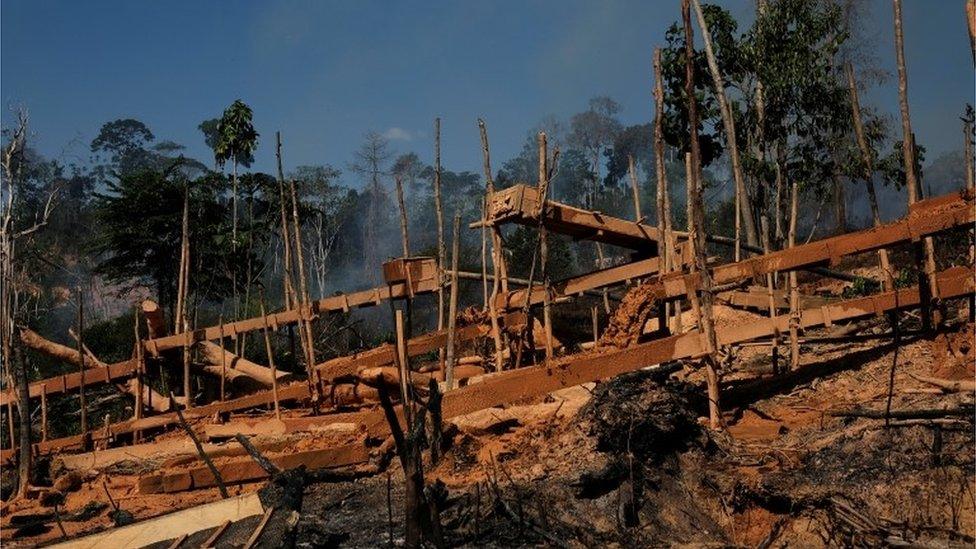Brazil revokes decree opening Amazon reserve to mining
- Published

Activists feared revoking protection to the Renca reserve could compromise it
The Brazilian government has revoked a controversial decree that would have opened up a vast reserve in the Amazon to commercial mining.
The area, covering 46,000 sq km (17,800 sq miles), straddles the northern states of Amapa and Para.
It is thought to be rich in gold, iron, manganese and other minerals.
From the moment President Michel Temer signed the decree in August opening the reserve to commercial mining, it was widely condemned.
Activists and celebrities voiced concern that the area could be badly compromised.
One opposition senator, Randolfe Rodrigues of the Sustainability Network party, said at the time that it was the "biggest attack on the Amazon in the last 50 years".
Following the criticism, the government revised the decree, prohibiting mining in conservation or indigenous areas.
But a court later suspended the measure altogether, saying any change to the reserve's status had to be considered by the Brazilian congress.
On Monday, the government decided to scrap the decree.
It said it would reconsider the issue in the future, in a wider debate.
"Brazil needs to grow and create jobs, attract mining investment, and even tap the economic potential of the region," said the Mines and Energy Ministry in a statement.
The ┤¾¤¾┤½├¢'s South America correspondent Katy Watson says this is a victory for environmentalists and a climb-down for the government.
- Published24 August 2017
- Published30 August 2017
- Published10 January 2017
- Published20 June 2016